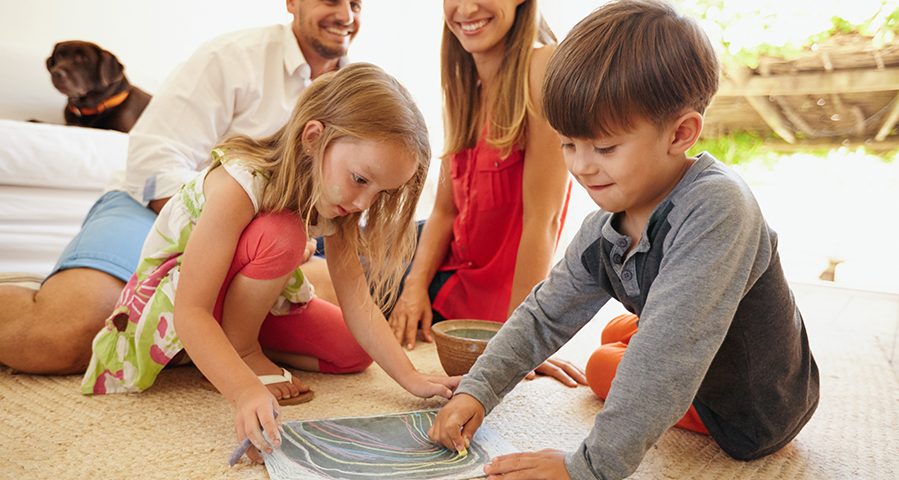
Suicide – Asking for help is not weakness
December 23, 2018
Providing COVID-Safe Care
April 12, 2021You’re not alone if you feel like this pandemic has pushed your stress levels to a new high and turned every day tasks into high stakes decision making. Parenting already had enough challenges without having to sort through all the various information sources – making sure you are current on new discoveries, up to date on the ever-changing guidelines, and figuring out what is fact and what is hype. It’s not only time consuming, but emotionally overwhelming.
As if the daily parental gauntlet wasn’t enough – preparing for the day, meals, chores, keeping up with school work, quality time, caring and comforting for sickness, and playing referee with siblings – now you are responsible for daily crisis management.
COVID -19 has made even mundane daily tasks stressful – finding essential supplies and groceries, bringing deliveries into your home, visiting the local drug store, paying your bills, and checking in with your parents. Do I have enough Clorox wipes to continue to sanitize every Amazon box? Is my job secure if I have to spend an hour of my day helping my children with their school work? How much does wearing a mask help? How do I convince my dad not to go to the grocery store?
As a parent having to manage a family through the biggest health event in our lifetime is not only incredibly daunting, but has thrown us into a decision-making process that causes decision fatigue and produces anxiety for the best of us.
As the world assesses the ongoing impact of virus spread and economic slowdown, we are in unprecedented territory and no one has a ‘Parental Pandemic Playbook’. It seems like just when we were learning to manage the quarantine crisis, now we have to navigate the chaos that comes with reopening. We have tried to reassure our children as we faced uncertainty in literally every arena – from workplace and school closure, to government oversight and protection, to our personal health and the strength of the infrastructures designed to mitigate disaster. As various states and industries start to open in phases, and leaders choose different paths, parents are forced again into seemingly countless scenarios regarding social connection, resuming activities, and assessment of internal and external safety.
Parents have to weight every decision with both reward and risk. We can’t expect our children to have zero exposure, but how diligent should I be with determining access to their friends, their family, their activities? Every state, every family, every person is seemingly operating from a different decision-making tree and level of risk tolerance. Many in the world move forward while others shelter in place. Am I finding the right balance of keeping them safe but not over worrying? And again there is no playbook – and no guarantee that a play that worked before will work again.
- Since gyms are reopening, is it now safe to also to visit a friend?
- Should they go to summer camp?
- What are the most crucial precautions that you should be considering as you review protocol for an activity?
- When do we start seeing family and friends again?
- What do I say to my teen when they see their friends on social media out and about?
I find other parents crucial in this process. We are stronger together. Trying to make decisions alone is so hard – so why not share as we develop the playbook? Reach out to other parents. Walk through your scenarios with each other. Talk through scenarios with trusted others in your child’s groups. Not only will you eliminate the feeling that you’re in this alone, but you might also reduce some anxiety. Sharing how you felt when you realized you were going the wrong way down the one-way aisle at the grocery store, or the sting you experienced when you got the email from school that your child was 2 weeks behind in math, will help you turn negative self-talk into shared experience, and maybe even laughter.
Acknowledging your anxiety and hurt over your child’s disappointment in a lost graduation, prom, sports season, and other milestones can help you let go and focus on what you have control over vs. what you don’t. Reaching out helps us find a sense of relief that we are all together trying to arrive at realistic and reasonable precautions to protect and provide for our children each step of the way. We won’t all agree and no one will be right – but we can learn from one another and create a playbook that gives us choices. Today might call for a cautious play to go for a win and tomorrow may call for a Hail Mary just to stay in the game.
- Are my kids age appropriately prepared and practiced with implementing precautions outside of the home?
- How we decide whether to leave an activity that is no longer safe or not following precaution protocols?
- What about differences in expectations, health risk, contact?
- Do we wear a mask?
- Do we hug?
- It is OK to say I’m not ready?
Stay connected with your support system, keep up your phone and zoom calls with your friends. Get outside, prioritize the wins that your kids took a bath in the last three days, was able to play part of the game with their sibling without fighting, got up again today to tackle another day, and thankful we are all still healthy.
As a parent during COVID-19 do know that you will reach your breaking point. You will need to cry it out. Crying has nothing to do with weakness. You will need release all the energy that has built up home schooling, managing a household, worrying about finances, and dealing with increased conflict in the home. Your tears helped you process in a healthy way. You’re strong. You got back up and started a new day.
You will experience an increase in depressed mood and anxiety. You will feel extra tired. You will have good days and also bad ones. What we do is move forward. Pick your battles. Let go that the dishes sat in the sink last night. Let go of the little things and chalk it up to stress and COVID-19. Make extra time for yourself, go outside, as yes breathe. 😊
With all the challenges does come some silver linings. Resiliency, innovation, family struggle can lead to connection in the long run. While a return to normal is not likely, evolving will happen. Hang in there, we will get through this!

